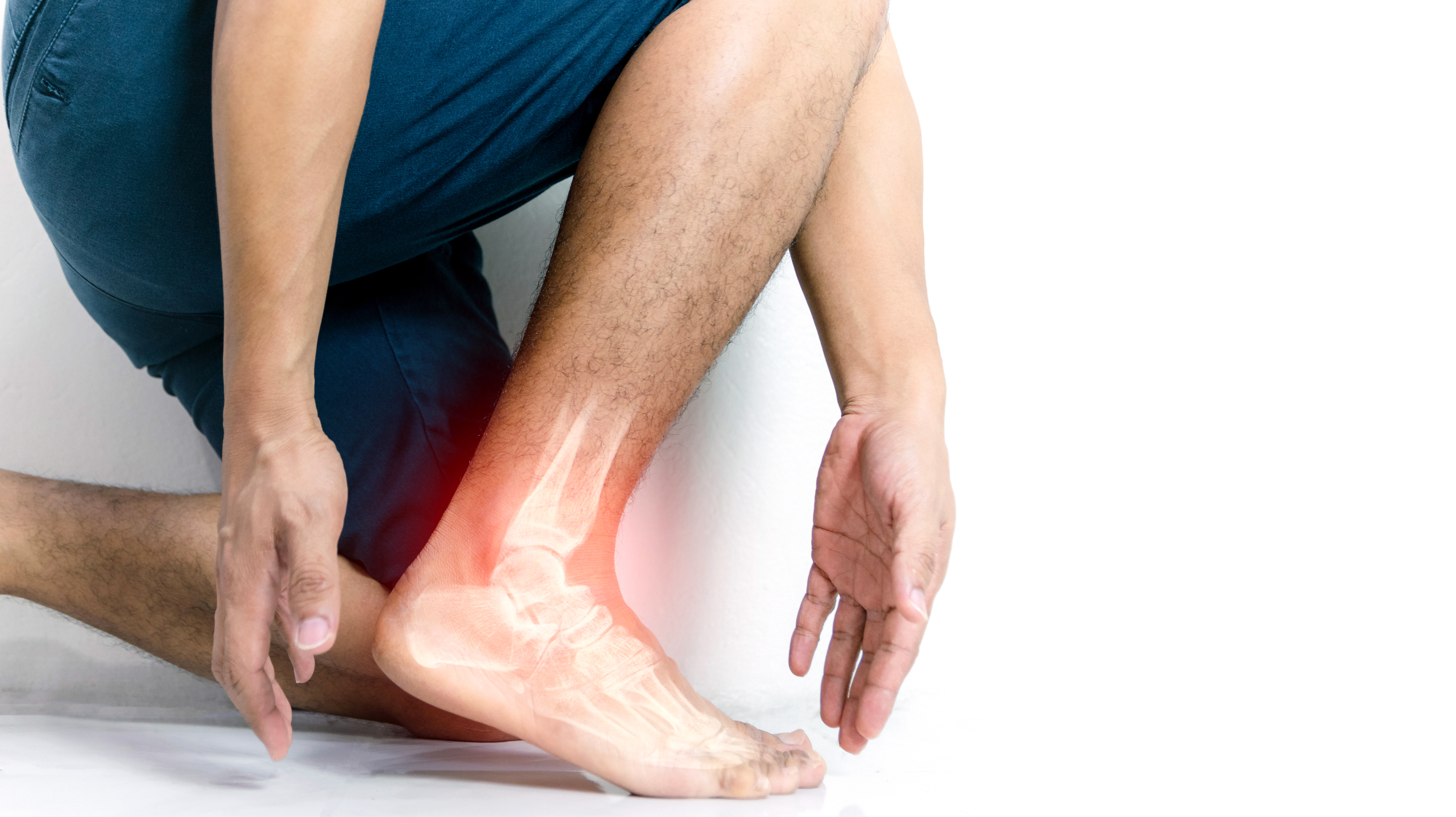
What is Retrocalcaneal Bursitis?
Retrocalcaneal bursitis is the inflammation or simply the irritation of the bursa located between the calcaneus (heel bone) and the Achilles tendon. The bursa is a small, fluid-filled sac that acts as a cushion to reduce any friction between the tendon and the bone during daily activities like walking, standing, running etc. When this bursa becomes inflamed, it can cause significant pain and discomfort in the heel.
Retrocalcaneal bursitis is a common condition, particularly among athletes and individuals who engage in repetitive activities that stress the heel and ankle. It is found in both the general population and athletes, with a higher incidence in those over the age of 65. Studies have shown that it is the most frequent lower extremity overuse condition in runners, dancers and figure skaters.
Causes and Risk Factors
Several factors can contribute to the development of retrocalcaneal bursitis:
• Overuse: Repetitive activities such as running, jumping, or walking can lead to overuse of the heel and ankle, causing inflammation of the bursa.
• Improper Footwear: Wearing tight or poorly fitting shoes that put excessive pressure on the heel can irritate the bursa.
• Haglund's Deformity: A bony enlargement on the back of the heel that can cause impingement and inflammation of the bursa.
• Arthritis : Conditions such as Rheumatoid Arthritis and gout can increase the risk of developing bursitis.
• Age: The risk of retrocalcaneal bursitis increases with age, particularly in individuals over 65.
Symptoms
Common symptoms of retrocalcaneal bursitis include:
• Pain and tenderness at the back of the heel, especially when walking or running.
• Swelling and redness around the heel.
• Stiffness and limited range of motion in the ankle.
• A cracking sound when bending the foot while heel comes in contact with the floor.
Differential Diagnosis
Retrocalcaneal bursitis can be mistaken for other conditions such as Achilles Tendonitis or Plantar Fasciitis. In order to get a proper diagnosis, you will need to come to Chester’s Best Foot Injury Clinic, Relive Physiotherapy to be examined and we can then confirm this for you.
Prevention Strategies
Preventing Retrocalcaneal Bursitis involves:
• Proper Footwear: Wearing well-fitting shoes with adequate heel support.
• Stretching: Regular stretching exercises to maintain flexibility in the Achilles tendon and calf muscles.
• Gradual Increase in Activity: Avoiding sudden increases in physical activity to prevent overuse injuries.
• Warm-Up: Proper warm-up before engaging in physical activities to prepare the muscles and tendons.
Treatment Options at Relive Physiotherapy
At Relive Physiotherapy, we often see people with Retrocalcaneal Bursitis, which is why we can build a personalised plan for you, taking into account your pain, schedule and goals. But, there will be a combination of any of the following:
• Manual Therapy: Hands-on techniques to reduce pain and improve mobility in the affected area.
• Ultrasound Therapy: Non-invasive treatment using sound waves to promote tissue healing and reduce inflammation.
• Shockwave Therapy: Uses sound waves to stimulate healing and reduce pain in the affected area.
• Injection Therapy: Corticosteroid injections to reduce inflammation and provide pain relief.
• Customised Insoles : Custom orthotic insoles provide long-term benefits by offering proper support and alignment for your feet. They help distribute pressure evenly, reduce strain on the muscles and tendons, and prevent further injuries.
• Exercise Therapy: Customised exercise programs to strengthen the muscles around the heel and improve flexibility.
Conclusion
Retrocalcaneal bursitis can be a painful and debilitating condition, but with the right treatment and prevention strategies, you can manage the symptoms and return to your normal activities.
At Relive Physiotherapy, we are committed to providing individualised care to help you achieve your rehabilitation goals. If you suspect you have retrocalcaneal bursitis or are experiencing heel pain, don’t hesitate to contact us for a consultation. Together, we can develop a treatment plan tailored to your needs and get you back to doing the things you love.
Gold Standard Exercises To Do At Home
Wellbeing : Tips for a Successful Ramadan
Wellbeing : Loss of Mobility & Independence
